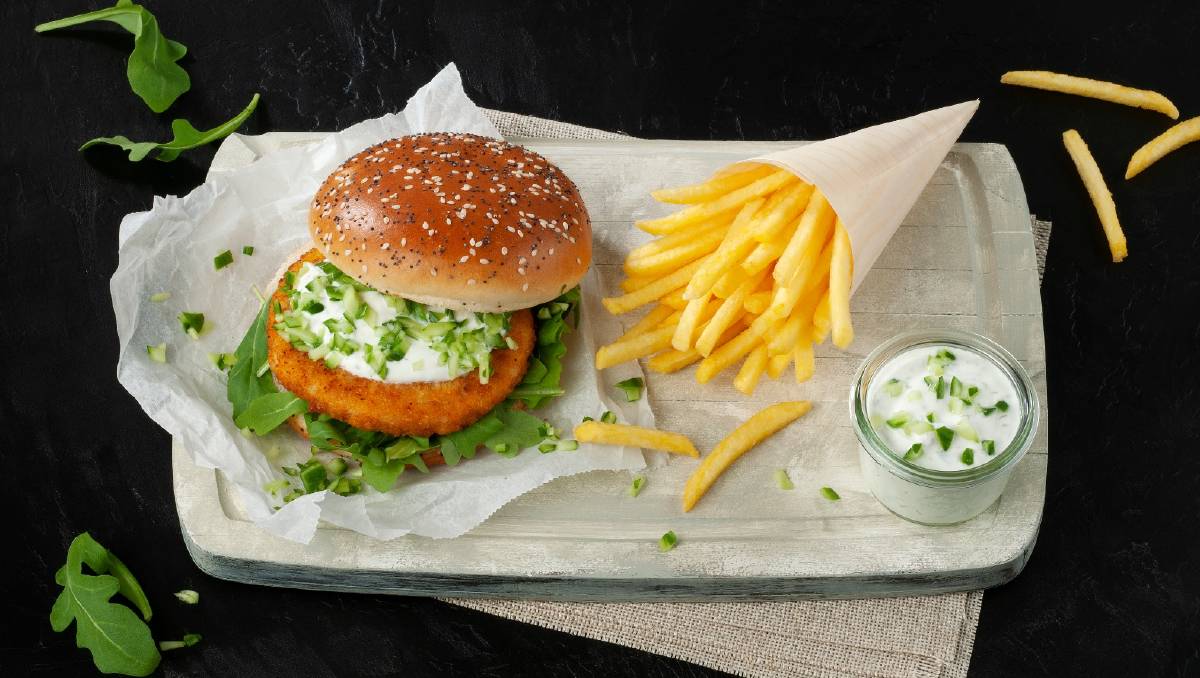
AS livestock industries push back against marketing claims being made by the makers of plant-based proteins, yet another new ‘no-meat meat’ product has hit the market. Dutch company Schouten, which has one of the world’s most extensive meat alternative ranges and sells into 50 countries, has launched a fishless fish burger. The company says fish is one of the most promising categories within plant-based food, pointing to research from AC Nielsen that found in Germany, between 2018 and 2020, the plant-based fish category grew by 623 per cent. But imitating fish is not easy, it says. Schouten’s research and development manager Anke van Eijk said it was a completely different process than replacing other meats. “We are getting better and better at mimicking this particular texture. Of course, the recognisable fish taste is also quite important. If these aspects are not correct, consumers are unlikely to make the structural switch to plant-based fish,” he said. Scientists say there are plenty of reasons to question claims made around climate change by those promoting plant-based products. Dr Stephen Wiedemann, principal scientist at service provider Integrity Ag and Environment said claims were vague, comparisons were typically done in overseas markets and any emission differences were modest. In a blog on the Australian Chicken Meat Federation website, Dr Wiedemann said while veggie burgers weren’t new, it had only been recently that marketing of plant-based alternatives had shifted from targeting vegetarian consumers to targeting environmentally-conscious meat eaters. “Manufacturers of plant-based have not been shy in touting their products as disrupters and market leaders in terms of environmental impacts,” he said. Details are scant on what meat products the plant-based options are comparing themselves to, he says. The issue has riled cattle producers, who say highly-processed plant-based alternatives are a long way from high-quality, natural T-bones or sirloins. (First published in The Land)
AS livestock industries push back against marketing claims being made by the makers of plant-based proteins, yet another new ‘no-meat meat’ product has hit the market.
Dutch company Schouten, which has one of the world’s most extensive meat alternative ranges and sells into 50 countries, has launched a fishless fish burger.
The company says fish is one of the most promising categories within plant-based food, pointing to research from AC Nielsen that found in Germany, between 2018 and 2020, the plant-based fish category grew by 623 per cent.
But imitating fish is not easy, it says.
Schouten’s research and development manager Anke van Eijk said it was a completely different process than replacing other meats.
“We are getting better and better at mimicking this particular texture. Of course, the recognisable fish taste is also quite important. If these aspects are not correct, consumers are unlikely to make the structural switch to plant-based fish,” he said.
Scientists say there are plenty of reasons to question claims made around climate change by those promoting plant-based products.
Dr Stephen Wiedemann, principal scientist at service provider Integrity Ag and Environment said claims were vague, comparisons were typically done in overseas markets and any emission differences were modest.
In a blog on the Australian Chicken Meat Federation website, Dr Wiedemann said while veggie burgers weren’t new, it had only been recently that marketing of plant-based alternatives had shifted from targeting vegetarian consumers to targeting environmentally-conscious meat eaters.
“Manufacturers of plant-based have not been shy in touting their products as disrupters and market leaders in terms of environmental impacts,” he said.
Details are scant on what meat products the plant-based options are comparing themselves to, he says. The issue has riled cattle producers, who say highly-processed plant-based alternatives are a long way from high-quality, natural T-bones or sirloins.
(First published in The Land)
Newcastle Herald – Life & Style

